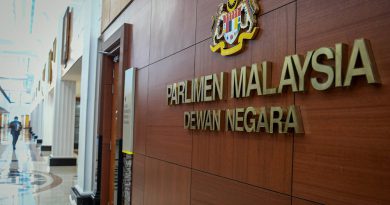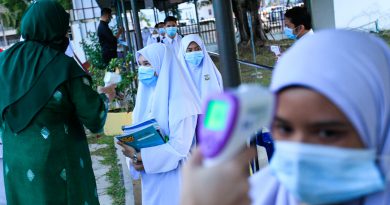Push for inclusive, responsible businesses
KUALA LUMPUR: THE impact of the Covid-19 pandemic on the economy has forced Asia Pacific Economic Cooperation (Apec) economies to change its narrative in doing business and investment on a renewed trajectory.
International Trade and Industry Ministry deputy secretary-general (investment) Datuk Bahria Mohd Tamil said the pandemic had given all stakeholders the opportunity to think more deeply about the role played by the business and investment communities in society.
“The past few decades have shown that more businesses and investment institutions are adopting more inclusive and responsible business models.
“Likewise, there is a growing interest among businesses and investment institutions to embrace the Sustainable Development Goals (SDGs) in their DNA,” said Bahria in her opening remarks at the Apec Public-Private Dialogue on Inclusive and Responsible Business and Investment, here, on Monday.
Meanwhile, she said the impact of the Covid-19 pandemic on the global economy had impacted many businesses, regardless of their size and place of operations.
“Companies not only have to adapt to the ‘new normal’ in their daily operations but also redesign their business models in order to remain relevant to consumers.”
The Apec Public-Private Dialogue had discussed the global commitment in realising the SDGs as well as growing interest among Apec economies on the importance of protecting the environment and promoting good social values and corporate governance – commonly known as the environmental, social and governance (ESG) pillars.
Bahria said according to the Business and Sustainable Development Commission in 2017, the SDGs had created market opportunities worth US$12 trillion in many economic sectors, including food and agriculture, cities, energy and health.
She said the economic argument for realising SDGs in the business and investment sectors was compelling in that it would spur economic growth and provide opportunities for businesses to expand their customer base.
“Malaysia is of the view that there is already an enormous public policy opportunity for the Apec to put forward bold Inclusive and Responsible Business and Investment (IRBI) strategies at the heart of their post-2020 and post-coronavirus plans.
“These ESGs, SDGs or our own vernacular IRBI factors, have proven to contribute an important role in predicting financial returns and, hence, they should not be ignored when considering an investment decision,” she added.
IRBI may be a new concept to Apec collectively but it is not a new investment discipline to many Apec member economies. It is a holistic approach aligned to ESG general principles such as good corporate governance, good record of social responsibility as well as positive impact on the environment, local and world social outcomes.
Bahria said the ministry hoped that the Public-Private Dialogue would bring IRBI to the forefront with a greater sense of urgency.
“Malaysia is optimistic that a constructive exchange of ideas and expertise will allow participants from the public and the private sectors to better understand the underlying principles of IRBI,” she added.
The ministry is the national secretariat of Apec 2020 and for this year, Apec is championing the principles of shared prosperity to lead the path towards economic recovery for the region.
Malaysia, as the Apec 2020 host, will convene a meeting of 21 Apec leaders for the first-ever virtual Apec Economic Leaders’ Meeting on Nov 20.
Source: NST




